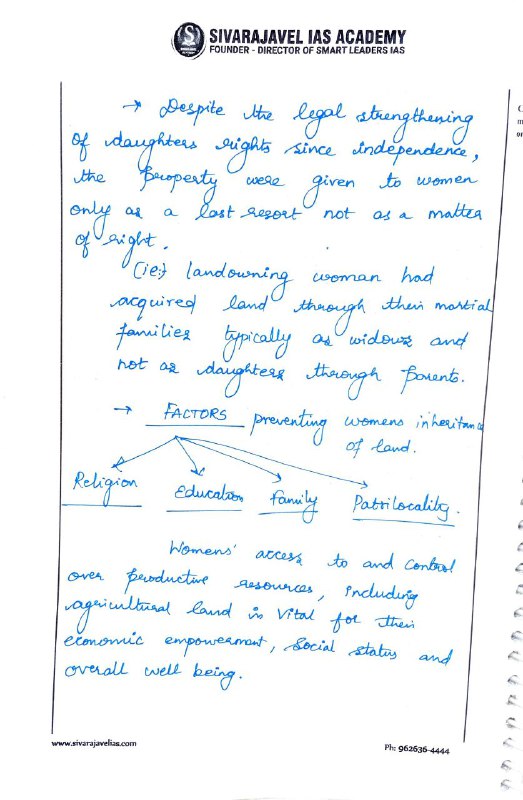Sociology Current Affairs | UPSC
Contact : SIVARAJAVEL IAS academy
97 AF block ,shanthi colony ,12 th main road,Anna Nagar,Chennai-600040.
Contact number:+91 9626364444.
Community chat: https://t.me/hamster_kombat_chat_2
Website: https://hamster.network
Twitter: x.com/hamster_kombat
YouTube: https://www.youtube.com/@HamsterKombat_Official
Bot: https://t.me/hamster_kombat_bot
Last updated 12 months ago
Your easy, fun crypto trading app for buying and trading any crypto on the market.
📱 App: @Blum
🤖 Trading Bot: @BlumCryptoTradingBot
🆘 Help: @BlumSupport
💬 Chat: @BlumCrypto_Chat
Last updated 1 year, 5 months ago
Turn your endless taps into a financial tool.
Join @tapswap_bot
Collaboration - @taping_Guru
Last updated 1 year ago

Social Fact pdf : https://play.google.com/store/apps/details?id=co.hodor.awice


SOCIOLOGY ANSWER WRITING CHALLENGE -11
#QUESTIONS
21-11-24
1.Why are sects and cults becoming popular?10 m
2.Comment on Durkheimian functionalist theory of religion as a creation of man.20 M
after 8 pm written model answers will be given for that ,through which you can self evaluate yourself.

Salut à tous !?
"Awaiting results can be tough, but your hard work and resilience are remarkable. Regardless of the outcome, our team is here to support you every step of the way. Believe in yourself; great things lie ahead!"❤️
Having said that, We are happy to present the 26th edition of our Sociological bulletin : "The Social Fact" which adds value to your UPSC preparation ✍️
We are focussing on Parsons and his major works in this edition. Students find it difficult to understand Social system and reference group theory. So we are providing you the lucid version of it.
Along with that, we have our very own "Connecting the dots" section and "Perspective" which touches upon the new areas of sociology.
All The Best !✍️
For higher resolution pdf : https://www.sivarajavelias.com/the-social-fact/
Join our telegram channel for more information: https://t.me/sivarajavelsociology
#SOCIOLOGY ANSWER WRITING CHALLENGE -11
Topics to be studied
21-11-24
Unit 8 :
a. Sociological theories of religion.
b. Types of religious practices: animism, monism, pluralism, sects, cults.
Questions will be posted by 5 pm daily. PYQ & Questions which will help you to holistically understand the topic.
after 8 pm written model answers will be given for that ,through which you can self evaluate yourself.
Anarcho-capitalism
The term "anarcho-capitalism" has recently gained attention, particularly with the recent electoral victory of Javier Milei, a self-proclaimed anarcho-capitalist, in the presidential race in Argentina.
Anarcho-capitalism refers to a political philosophy which calls for the abolition of the state and for the provision of law and order to be controlled by private companies in a free market.
● Within an unrestricted free-market economy, anarcho-capitalists argue, there would be no space for monopolies to develop, due to the competitive nature of the market and a lack of regulation.
● Anarcho-capitalism espouses the notion of a minimal state and unrestricted capital, positing that such a framework would foster innovative endeavours and promote inclusive development, according to David Friedman.
● Murray Rothbard, who coined the term anarcho-capitalism says that it is the logical conclusion of the Non-Aggression Principle (NAP), i.e. also known as libertarianism arguing that every human is granted natural and inalienable rights, including the right to life, liberty and property.
● Beck adds that economic discourse that artificially privileges the centrality of capitalism in Western society argues that there are no viable alternatives to capitalism. And so, anarcho-capitalism is projected to fill the gap.
● Albert Jay Nock moots for anarcho-capitalism in his book ‘Our Enemy, the State’, saying that the US government seeks to accumulate more power and wealth at the expense of individuals at every possible opportunity. He saw the New Deal as a way for the government to tighten its grip on society and the economy.
Critique
● Collectivist anarchists reject the idea that capitalism and anarchism are reconcilable ideologies. They argue that, within the anarcho-capitalist vision, the oppressive structures of the state are simply replicated.
● Most libertarians/anarcho-capitalists accept that some minimal form of state control needs to exist, to maintain order in society. This model of the state was developed by John Locke, who labelled the ideal as a 'Night Watchman', which only intervenes to protect its citizens from theft, deprivation of property, or physical harm.
● Steinberg points out the concerns that anarcho-capitalism might not entirely resolve societal tensions and might even restructure existing structures without addressing underlying problems. For instance, the global financial crisis did not lead to an imminent collapse or implosion that was widely predicted at the time. A ‘business-as-usual’ approach was quickly re-instated in a post-crisis United Kingdom, without finding lasting solutions.
*?*?Marital Rape - A Play of Power*?*?
In March 2022 the Karnataka High Court ruled that a married man can be prosecuted for raping his wife.
The very definition of rape incorporates the necessity of ‘consent’ or ‘will’ to be engaged in sexual activity. The concept of criminalisation of Marital Rape fosters the idea that rape is not an act only against the sanctity of women but against the consent and will of the person.
Marital rape is ultra vires the fundamental rights guaranteed by the Constitution of India i.e., Article 14 and Article 21. However, the non-Criminalization of marital rape in India emanates from exceptions in Section 375 of the IPC.
The notion that a husband can rape his own wife was not and is not acceptable to many people in society even today. The rationale is that man and wife are one and a married man could not commit rape against his wife.
✅Andrea Dworkin, marriage as an institution developed from rape as a practice. Rape, originally defined as abduction, became marriage by capture (Rakshasa).
✅David Finkelhor and Kersti in their book ‘License to Rape: Sexual Abuse of Wives’, more than 30 years ago stated that marriage is nothing but a license to rape.
✅Bogger argued that given the power inequality in the institution of marriage, all marital sex is coerced.
✅Bringing Marital Rape into the domain of criminal law would not be seen positively from a functionalist perspective. It would suggest that gender inequalities exist as an efficient way to create a division of labour, where a woman is responsible for spawning a child in the family and pleasing her husband. The act of criminalising Marital Rape would disrupt the existing patriarchal structure of the society, thus, creating havoc.
✅Feminists say that the oppression of women occurs through sexual subordination. Hence Shulamith Firestone appeals to the idea of women as a class whose sexuality, like the proletariat’s labour, is exploited.
✅According to Aileen Marques, low women empowerment and literacy rates have led to the perpetuation of social norms that have dominated women's psyche for centuries and have also been a major factor in women's refusal to recognise marital rape as rape.
✅Sangeetha Rege explains that women are typically subject to different types of violence such as Emotional, verbal, economic, physical and sexual which overlap with each other. She adds that despite the wide prevalence of such sexual violence, the criminal justice system often fails to take cognisance of it.
✅When the discord between husband and wife increases, the husband tries to prove himself more powerful and dominant than the woman. To humiliate his wife he shows his dominance over her and destroys her privacy, says Iris Young.
✅Leela Kasturi argues that the social relations of gender and class relations are part of a historical inheritance such as patriarchy, wherein inequality and hierarchy are implicit, indicating male supremacy. This to a large extent governs social and gender relations leading to consequences like marital rape.
✅Any relationship based on the genuine consent of the partners is interpreted as a defiance of patriarchal authority and a threat to endogamy says Uma Chakravarti. Therefore, patriarchy as a product of caste and religion deters equality outrightly and portrays the act of violence by men as power over women.
Indian Scenario
?India is one of the 36 countries that has still not criminalised marital rape. According to UNFPA, about two-thirds of women in India and according to NFHS 2015-16, almost 83% of married women aged between 15 and 49 have blamed their husbands for sexual violence and 7% have also called their husbands an offender.
?In 2019, a UN Women's report on the status of women worldwide stated that “statistically, the home is one of the most dangerous places for women.”
?NFHS 2019-20 also states that at the pan India level, 9 out of 100 men believe that the husband has the right to use force and have sex with his wife even if she does not want to.
Community chat: https://t.me/hamster_kombat_chat_2
Website: https://hamster.network
Twitter: x.com/hamster_kombat
YouTube: https://www.youtube.com/@HamsterKombat_Official
Bot: https://t.me/hamster_kombat_bot
Last updated 12 months ago
Your easy, fun crypto trading app for buying and trading any crypto on the market.
📱 App: @Blum
🤖 Trading Bot: @BlumCryptoTradingBot
🆘 Help: @BlumSupport
💬 Chat: @BlumCrypto_Chat
Last updated 1 year, 5 months ago
Turn your endless taps into a financial tool.
Join @tapswap_bot
Collaboration - @taping_Guru
Last updated 1 year ago